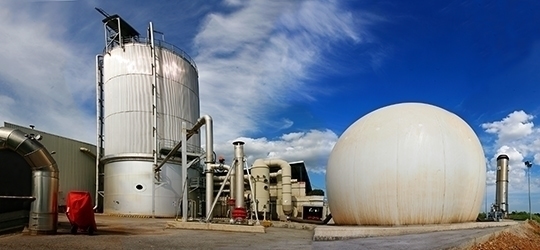
We citizens tend to think that our responsibility with regard to the waste we generate is confined, at most, to putting it in the bin. The European Union regulation and the systems implemented in each Member State hinge on the responsible behavior by citizens, who are the first link in the chain of the recycling process. It’s not enough that all waste goes into the bin; we also have to separate it correctly in our homes and use other infrastructure, such as recycling centers.
Despite a rainy Easter holiday, we had enough good weather for me to enjoy one of my favorite pastimes: mountain trekking. One day, we had to walk along a country road because the trails were impassable. Although the mountainous landscape was spectacular, I couldn’t help noticing all the garbage that had accumulated in the roadside ditches, both the amount and varying degrees of decomposition. The bulk were drink cans and bottles, but there were also countless cigarette packs, plastic shopping bags, paper, and a whole range of objects so far from the city it would baffle CSI (an umbrella, a shopping cart, a sink, etc.). I imagine the range of garbage would be much greater along a highway.
While I was walking, I remembered a newspaper article I wrote some time ago called “What do we do with garbage?” I was staring at one of the answers to that question: some people just dump it anywhere. I found the article’s message was still valid so I decided to adapt it to the situation today and share it with you.
The article started with a question whose answer is not as obvious as you might think: “What is garbage?” When I give a talk on the subject, I like to begin by asking the audience this question—or, to use a more technical term—what is waste? Although I usually receive different answers, they don’t vary significantly, they don’t depend on a person’s education, and they tend to focus on a few items: leftover food, cans, bottles, plastic bags, etc. Once I get the more outspoken people in the audience to loosen up, I ask the audience what they do when they break a broom, or a backpack, or the binders where they carry their notes, or their toothbrushes…or when they tire of a toy, furniture, decoration, a lamp or when those things are no longer in style (just glancing around you’ll surely find items to add to this list). This time all the answers are the same: we throw it in the bin. Then I repeat my original question: “What is waste?” It’s normally met with silence. Then I give the correct answer: EVERYTHING.
In reality, EVERYTHING we have and use during our lifetime—whether at home, at work, or on vacation—ends up in the bin if we behave responsibly. There are things that become garbage surprisingly fast (an ice cream wrapper, gift wrap, the plastic around a magazine); some take slightly longer (a newspaper, which can last a day; a milk carton, a few weeks; this season’s clothing, a few months; a computer, a few years); and we may even believe that some things, like our car or home, will never be waste. However, nothing escapes this inexorable law: the car will last for years, but it will end up as scrap metal, and homes may be refurbished, but in the end they will be torn down, generating more waste.
Many people don’t believe this is true, simply because they cannot see the big picture. For example, you can give someone else your old computer, donate your old clothes to an NGO, or sell your old car so you can buy a new one. And although time will pass and these items may have several owners, they will inevitably become garbage, even though we may not see it because it happens at another time in another place. Since so much time passes from when we acquire these products until they become waste, some people maintain that this isn’t a serious problem. They cannot understand that, even though they don’t throw out their computer this year, thousands of people will. Every year thousands of people buy a new mattress and throw their old one out. The same happens with furniture, and suitcases. Every day thousands of pens, shoes and toys end up in the garbage. As you’ll have noticed, I’m assuming that we’re all exemplary citizens and that we always throw our garbage in the bin, but a walk in the city or the countryside reveals that’s not always the case.
At this point, I think it’s time that we ask the question that headed my article, but in a more appropriate way: “What do we do with EVERYTHING we use during our lifetime when we decide to get rid of it because it no longer works or we’ve grown tired of it?” Now I’m asking about EVERYTHING, and not just the few items that people think of in response to my initial question. Moreover, that initial question could be interpreted in two ways: if we’re talking about the here and now, it would be “What are we currently doing with all the garbage?” But it could also be rewritten as something to think about: “What are we going to do with our garbage in the future?” The first question is easy to answer, since it limits discussion to the current situation. The second question is much more complicated, since the answer requires consideration of social, economic, environmental and technological factors.
Let’s look at the first part of the question. Some time ago, the European Union established a standard framework for the comprehensive management of the waste generated by its citizens, which all Member States must apply. This framework attributes responsibility to the producers of trash (i.e. people in their homes, at work, etc.), and requires that they separate their waste into separate bins on the curb: paper, glass, packaging, and other. Additionally, citizens can take other kinds of waste to recycling centers, specifically building rubble, expired medicines, oils, batteries, chemical products, electronics, etc. Moreover, some waste can be brought back to the place where the original products were sold, i.e. pharmacies accept expired medicines, and shops accept blown light bulbs. In short, we have to take our waste to different places. Let me make a very important point: the European regulation requires the separate collection of only a part of the total waste we generate in our daily lives. Also, if that portion is not separated at the source by the citizen, the rest of the process breaks down. I would also like to respond to comments I hear frequently about the inconvenience of having several bins at home, or having to go to recycling centers or take small amounts of waste to specific places. I could give a range of answers: if I were a lawyer, I would say “The law is tough, but it’s the law”. If I were a politician, I might respond “This is the approach imposed by the EU and the Ministry, and I have no choice but to uphold the law.” But my answer would be as follows: respect for and preservation of the environment requires that everyone participate. Cooperation is vital wherever we are, and I would highlight the slogan used by Germany’s Green party: “Think globally and act locally.” There’s no place more local than our own homes.
The waste deposited in bins, at recycling centers and at certain businesses is collected by the city or by private companies and taken to treatment plants. At those plants, the waste is separated by type (e.g. different kinds of plastics) and is sent to be recycled (steelworks, paper mills, etc.).
In short, it’s important to consider the following: first, without correct separation at source, the process falls apart. Second, without technology and treatment facilities, the process falls apart. Third, without recycling companies, the process falls apart. Fourth, and most importantly, if no one pays the costs of each stage of the process, it falls apart. According to the European Union, the producers of waste (i.e. the citizens) must pay the real cost of the system, either directly or indirectly.
Then we might ask: What happens to waste that is poorly sorted, waste that is discarded in inappropriate places, waste whose treatment is not obligatory under the European regulation, and residual waste (i.e. what’s left over after waste recycling/reuse). We want that waste to be recycled as well, but it’s not possible without the right technology or when no one pays the cost. In those cases, the European Union also has an answer: burn it or send it to a landfill, or a combination of the two (first burn it and then send the ash to a landfill). Unfortunately, there is no other solution, or at least no one has been able to come up with one in countries where waste is properly collected and treated.
You can see that this is the situation just by looking around when you travel to a different region of the EU. You will find the same system of bins and recycling centers for the same types of waste. The same types of waste are collected and recycled in all of those places. Unfortunately, if you visit less developed countries, you won’t find any such system. Waste is disposed of on the street and or holes that are landfills only in name.
What conclusion can we draw? That the way we collect, treat and recycle waste in our town, in our region and in our country necessarily requires cooperation and responsible behavior by all citizens. It is a legal obligation and, much more importantly, a social and moral obligation.
We must also answer the second question: “What are we going to do with our garbage in the future?” Again I must refer to the European Union: in July 2008, the Commission and Parliament approved a new waste Directive, which provides some answers. Soon it will become Spanish law.
Without discussing the details of such a highly legal and technical text, I will jump directly to the proposals that may affect us as citizens. The European Union asks Member States to implement solutions to reduce the amount of waste at the source (the waste we generate at work or at home), to recycle more and to reduce the amount of waste we send to landfills and incinerators; however, it doesn’t say how to achieve these goals. In this vein, the Directive strongly promotes energy-from-waste as the technology for waste reuse, which is a notable change from the EU’s position in the past. Although the EU doesn’t say it, it’s clear that this technology will require producers and governments to implement new processes and facilities, which will clearly increase waste management costs.
And for those people that complain about the many garbage bins they have at home, the Directive requires the gradual addition of another, exclusively for organic waste (food leftovers, garden waste, etc.). This means that additional bins will have to be added in the streets and—you guessed it—people will have to separate this new type of waste.
The Directive does not include new types of waste that must be recycled. Therefore, the goal for less waste to be disposed of in landfills or burned at incinerators should be achieved by increasing the efficacy of processing technologies and by reducing the waste generated by citizens. We’ll have to wait and see how this works, because the European Union says what we have to do but not how we have to do it.
In the coming years, citizens and governments will have to figure out how to comply with the new legal framework. We will have to debate, and we will also have to make decisions, many unpleasant. We will have to answer important questions, like “How can companies and citizens be made to generate less waste? What new collection and treatment systems and facilities should be implemented? What do we do with the waste that cannot be recycled? Do we continue to send it to landfills and incinerators?” And, most importantly: “How much are we willing to pay so that our waste is handled properly?” In short, the answer to the question I pondered while walking along the road is in our hands, either directly or through our elected representatives: as citizens in a democracy, we will have to decide what we want to do with our garbage, and consider the consequences of our decision. But keep in mind that we’re not being asked about what we don’t want (nobody likes landfills or incinerators), but, rather, we must make clear what our decision is and that we are willing to bear the cost. The roadside ditches will thank us for it.






There are no comments yet